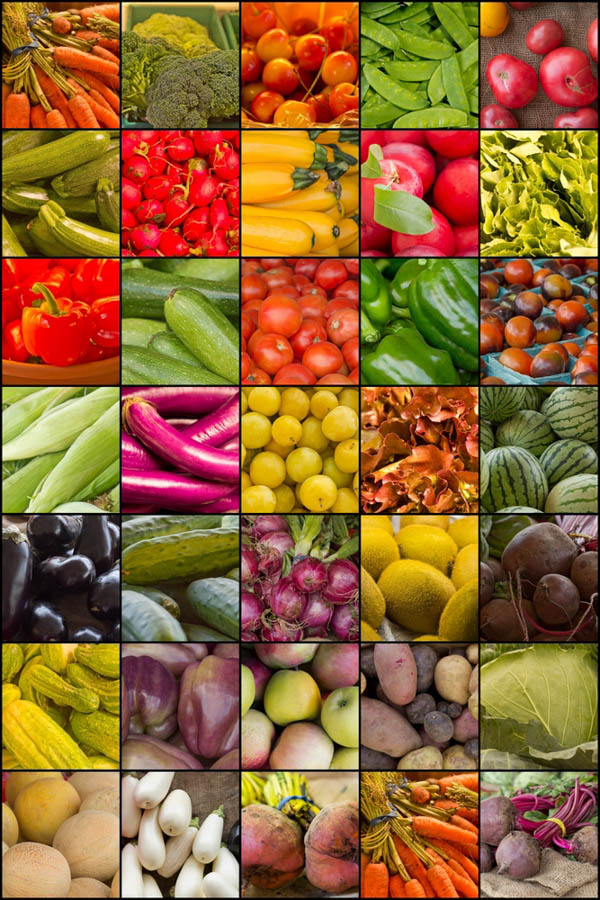3 Easy Vegetables for Beginning Gardeners

by Ann Clary and C. Darren Butler
GardenZeus earns commissions on sales made through links in this article. There is no additional cost to you.
Many vegetables are easy to grow, but cherry tomatoes, loose-leaf lettuce and zucchini stand out for being easy to grow, quick to maturity and high productive.
Cherry Tomatoes. Tomatoes are one of the easiest vegetables to transplant and cherry tomatoes are the most reliable general category of tomatoes, and a good choice for beginners. Consider Super Sweet 100, a flavorful red cherry tomato or SunGold, a standout gold cherry tomato. Both are hybrids and disease-resistant and prolific. Both varieties are commonly available as transplants in local garden centers.
Tomatoes yield best in well-drained, loose, fertile soil with sufficient calcium and moderate-to-high organic matte and a pH in the range of 5.8 to 6.8.
Tomatoes prefer full sun and consistently-moist-but-not-wet soil, daytime temperatures of about 75° to 85°F and not above about 95°F, nighttime temperatures above 55°F. In the hottest areas, tomatoes benefit from afternoon shade.
Tomatoes are heavy feeders: avoid growing tomatoes or their relatives including peppers, potatoes, and eggplants in the same place for more than one season every 3 or 4 years to avoid depleting soil and encouraging pests and diseases.
GardenZeus has customized information for growing tomatoes in your area. To get started, enter your zip code here, then go to tomato.
Loose-leaf Lettuce. Mix. Cherry tomatoes are easy to grow and loose-leaf lettuce may be even easier. But unlike tomatoes, beginners need not start lettuce from transplants. Seeds can be broadcast outdoors and covered with a very thin (1/8-inch or less) layer of fine soil or sand. Broadcasted seeds must be kept moist for germination, which may require misting or watering with a gentle, fine spray a few to several times per day. Lettuce does not germinate well when in complete darkness or when buried under more than a very thin layer of soil. Gardeners in warm areas should consider Black Seeded Simpson as a standout lettuce variety with some heat resistance; gardeners in cooler areas can consider growing a mix, such as Salad Bowl Blend.
Lettuce prefers loose, reasonably fertile soil. Soil pH between about 6.2 and 6.9 is recommended, and soil pH is generally more important for lettuce than soil type or texture.
Lettuce prefers full sun in daytime temperatures of 70° F to 75° F, and may suffer, bolt, or become bitter above 80° F, during longer summer days, and during shorter, colder fall and winter days. At 85° F to 90° F temperatures and above, virtually all varieties of lettuce will suffer, become bitter, or bolt in from a few days to 2 to 3 weeks.
Lettuce is not a heavy feeder: there is no need to rotate the placement of lettuce from year to year.
GardenZeus has customized information for growing loose-leaf lettuce in your area. To get started, enter your zip code here, then go to loose-leaf lettuce.
Zucchini. Zucchini is a relatively easy vegetable that produces early and abundant yields, which make it a good choice for beginning gardeners. Purchase seeds, not seedlings; zucchini does not transplant well. Choose a hybrid such as Emerald Delight that is resistant to powdery mildew and mosaic virus.
As long as fertility and drainage are sufficient, zucchini performs well in a variety of soils. Zucchini is less fussy than some vegetables about soil acidity, and performs reasonably well in the range of about 5.8 to 6.9 pH.
Ideal temperature range for germination is 70° to 95°F with fastest germination at the warmer end of this range. Ideal temperature range for growth and fruiting is about 65° to 75°F. Zucchini withstands temperatures up to 100°F, but growth and fruiting may be diminished at temperatures above 85°F, and flowers may drop at high temperatures.
Zucchini are heavy feeders that benefit from well-drained, loose, fertile soil with sufficient calcium and moderate-to-high organic matter. Avoid growing zucchini or any squash varieties in the same place for more than one season at a time to avoid depleting soil and concentrating pest populations and diseases.
GardenZeus has customized information for growing zucchini in your area. To get started, enter your zip code here, then go to zucchini.


